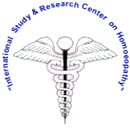Acne
Severe acne is inflammatory, but acne can also manifest in non- inflammatory forms. The lesions are caused by changes in pilo-sebaceous units, skin structures consisting of a follicle and its associated sebaceous gland, changes that require androgen stimulation. Though the disorder shows on the skin, it is most commonly caused by a disharmony within the internal organism. This disharmony sometimes is referred as hormonal imbalance in common parlance.
- Face
- Upper part of chest, and
- Back
- Buttocks
- Groin
- Armpits, etc.
Some of the various factors that precipitate or are associated with acne are-
- Puberty
- Psychological stress
- Pregnancy
- Excessive use of cosmetics
- Menstrual cycles
- Menopause
- Hormonal disturbances
- Change in season
- Heat/ sunlight
- Exposure to pollution
- Use of oral contraceptive pills
- Unhealthy lifestyle
- High carbohydrate content in food, etc.
What are the various types/forms of acne?
Acne is a conglomerations of various similar skin conditions. It can manifest in many ways, and named accordingly. The most common form is Acne vulgaris. Other forms include-
- Acne rosacea
A red rash predominantly on the face.
- Acne keloidalis nuchae
A rash caused by shaving.
- Acne conglobata
Chronic abscesses or boils of sweat glands and hair follicle.
- Acne cosmetica
Acne caused by use of cosmetics.
- Acne fulminans
An extreme form of acne conglobata.
- Acne medicamentosa
Acne caused by starting or stopping medicine.
- Baby acne
A rash seen on the cheeks, chin and forehead of infants.
Common symptoms of acne
- seborrhoea (scaly red skin),
- comedones (blackheads and whiteheads),
- papules (pinheads),
- pustules (pimples),
- Nodules (large papules)
- Scarring
- Pain in the areas surrounding acne.
Acne occurs most commonly during adolescence, and often continues into adulthood. Some people may carry this condition even in their thirties and forties.
Conventional Treatment
The usual treatment methods consist of topical ointments, creams, lotions etc. along with anti-inflammatory and hormonal preparations. However, many times unsightly scars and appearance in new places with even more sever forms is the result.
The tendency to appearance of acne is also not cured. They keep appearing and each time they are suppressed or palliated with external applications and aggressive treatment methodologies.
How can homoeopathy help in acne?
Homeopathy treats the person as a whole. It means that homeopathic treatment focuses on the patient as a person, as well as the pathological condition. The homeopathic medicines are selected after a full individualizing case taking and case-analysis, which includes the medical history of the patient, physical and mental constitution etc.
A miasmatic tendency (predisposition/susceptibility) is also often taken into account for the treatment of chronic conditions. In homeopathy general symptoms and constitutional indications are also taken into account for selecting a remedy. Early treatment by natural methods like Homoeopathy helps not only to overcome the unsightly effects, but also makes the person stronger from within.
The person gains multifarious benefits with homeopathic treatment, including
- Reduction in the infection and the tendency to scar formation
- Prevention of further appearance of acne
- Correction of hormonal disturbances
- Correction of the abnormal skin texture (oiliness or dryness)
- Reduction of the discoloration patches or spots due to acne
Tips on general management of acne
- Clean skin gently- Gently wash your face with a mild cleanser [according to the type of your skin], once in the morning and once in the evening, as well as after heavy exercise. Wash your face with plain water frequently
- It is also important to shampoo your hair regularly. If you have oily hair, you may want to wash it every day.
- Avoid frequent handling of the skin. Avoid rubbing and touching skin lesions. Squeezing, pinching or picking blemishes can lead to the development of scars or dark blotches.
- Shave carefully- Shave gently and only when necessary to reduce the risk of nicking blemishes.
- Choose cosmetics carefully.
- Products such as facial scrubs, astringents and masks generally aren’t recommended because they tend to irritate skin, which can aggravate acne. Excessive washing and scrubbing also can irritate skin.
- Avoid irritant like oily or greasy cosmetics, sunscreens, hair-styling products or acne concealers. Use products labelled “water-based” or “non- comedogenic.”
- Protect yourself from sun if it worsens acne.
- Do’s & Don’ts
- Wash your face frequently, at least 5 times a day, taking care that it does not become too dry.
- Do not scrub your face while washing because scrubbing on inflamed skin aggravates the acne.
- Use a gentle cleanser made of natural ingredients or herbs rather than chemical preparations.
- Do not use scented soaps and use a mild anti-bacterial soap if possible.
- Try not to apply cosmetics regularly or use non-greasy light make-up of repute.
- Do not sleep with your make-up on.
- Do not overexpose your skin to the sun. Preferably wear a hat while going out.
- Do not break your pimples else it will lead to secondary infection.
- You can use facial steam to reduce inflammation and infection but never for more than 15 minutes and not more than once a fortnight.
- Diet should be rich in natural whole foods like whole grain cereals, fresh fruit salads and vegetables raw or lightly cooked. Avoid fatty food, chocolate, ice cream, butter, cakes, white bread, sweets and fried food.
- Supplements of vitamin A and Zinc may be used.
- Regular exercise will make your circulation better.



